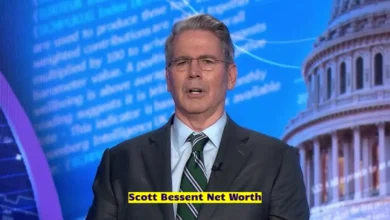California Banning Plastic Bags: Everything You Need to Know About the New Legislation
California Banning Plastic Bags: California is taking a major step to reduce plastic waste by expanding its plastic bag ban, set to go into effect on January 1, 2026. The new legislation, AB2236 and SB1053, will prohibit not only single-use plastic bags but also thicker “reusable” plastic bags, which have been shown to contribute to environmental pollution. With support from environmental groups and retailers, this updated law aims to promote sustainable alternatives and further reduce the state’s plastic footprint.

California has long been at the forefront of environmental protection, and now the state is taking another bold step to reduce plastic waste. After implementing a ban on single-use plastic bags nearly a decade ago, California is now moving forward with new legislation to further restrict plastic use by banning thicker, reusable plastic bags. This article covers everything you need to know about California’s plastic bag ban, the reasons behind it, and what to expect in the coming years.
Why Is California Banning Plastic Bags?
California first passed a ban on single-use plastic bags in 2014 with the SB 270 law, making it the first state to take such a significant step toward reducing plastic waste. However, despite the initial ban, there has been a notable increase in plastic waste as thicker, so-called “reusable” plastic bags have become common. These bags, although marketed as reusable, still contribute to environmental pollution as many consumers only reuse them a few times before discarding them.
Studies have shown that these thicker bags, made of high-density polyethylene (HDPE), take even longer to break down than the thinner plastic bags they replaced, causing further harm to the environment. With mounting evidence, California lawmakers saw the need to address this loophole in the original legislation and introduce stricter regulations to tackle the growing plastic problem.
New Legislation: AB2236 and SB1053
In response to the environmental concerns, California lawmakers have proposed two bills: AB2236 and SB1053. These bills aim to ban not only the thin, single-use plastic bags but also the thicker plastic bags that many stores now offer as reusable alternatives. If passed, this updated law will prohibit these bags from being provided at checkout in stores across the state.
Instead, customers will still have the option to purchase paper bags or bags made from at least 50% post-consumer recycled materials for a 10-cent fee. This fee is intended to incentivize customers to bring their own reusable bags, thereby reducing the reliance on disposable or semi-reusable plastic bags.
When Will California Banning Plastic Bags Go Into Effect?
The proposed plastic bag ban, if signed into law, will go into effect on January 1, 2026. This timeline allows retailers and consumers to adjust to the upcoming changes and find more sustainable alternatives for their shopping needs.
What Are the Environmental Benefits?
Banning plastic bags, particularly the thicker “reusable” plastic bags, will have several significant benefits for California’s environment. Here are some key advantages:
- Reduced Plastic Waste: The ban will dramatically decrease the amount of plastic entering landfills and polluting oceans, rivers, and other natural habitats.
- Lower Carbon Footprint: Producing plastic bags, even reusable ones, requires large amounts of fossil fuels. By encouraging the use of sustainable alternatives like reusable cloth bags, the state can significantly reduce its carbon emissions.
- Protection of Wildlife: Marine and terrestrial animals often mistake plastic bags for food, leading to injury or death. Reducing plastic waste will help protect wildlife from these hazards.
What Happens Next after California Banning Plastic Bags?
While AB2236 and SB1053 have gained strong support from environmental organizations and some retailers, they still need to pass through the state legislature and be signed by the governor. Once signed, the ban will be officially enacted, making California’s stance on plastic bags even stricter than before.
Retailers will be required to phase out the use of plastic bags and switch to compliant alternatives by the 2026 deadline. In the meantime, consumers are encouraged to adopt more sustainable habits, such as carrying reusable bags for their shopping trips.
How Will This Impact Consumers?
For California shoppers, the impact will likely be minimal as many are already accustomed to bringing reusable bags due to the 2014 ban on single-use plastics. However, the upcoming changes mean that even the thicker plastic bags will no longer be available at checkout, pushing consumers to adopt more eco-friendly options.
Retailers will continue offering alternatives like paper bags or those made from recycled materials, though the 10-cent fee will remain in place. To avoid this fee, customers can bring their own reusable bags, helping both the environment and their wallets.
California’s Leadership in Environmental Protection
California has long been a leader in environmental legislation, and the plastic bag ban is just one of many efforts to reduce waste and combat climate change. The state has implemented measures such as reducing greenhouse gas emissions, promoting renewable energy, and limiting the use of harmful chemicals. By expanding its plastic bag ban, California continues to set an example for the rest of the country on the importance of sustainability.
Conclusion
California’s updated plastic bag ban, which targets both single-use and thicker “reusable” plastic bags, is set to go into effect on January 1, 2026. This move marks another milestone in the state’s efforts to reduce plastic waste and protect the environment. With the passage of AB2236 and SB1053, consumers will be encouraged to adopt more sustainable shopping practices by using reusable bags and limiting their reliance on plastic altogether.
The new legislation is part of California’s broader commitment to environmental protection, serving as a model for other states and countries in the fight against plastic pollution.
Read also: Deshaun Watson Net Worth: A Deep Dive into His Wealth, Contracts, and Endorsements



